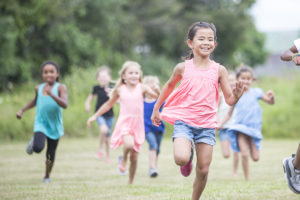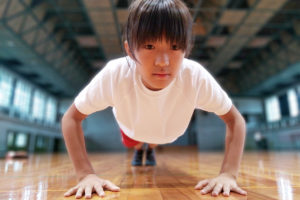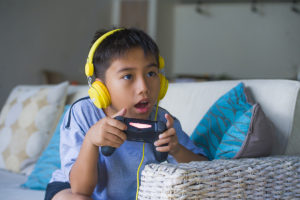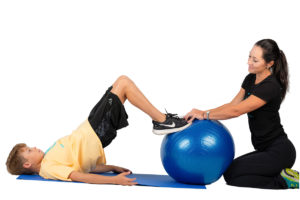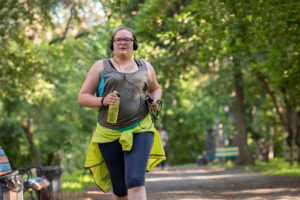Kids & Teens
Improving the Health of Latino Children
Researchers designed a successful 3-year lifestyle program to increase the overall health of Latino children in low-income neighborhoods.
Fitness and Brain Health for Kids
Looking at the connection between fitness and brain health for kids, researchers discovered that fit children did better on cognitive exams.
Healthier Kids: Exercise Guidelines
Healthier kids grow to be healthier adults. That’s a recipe for success for parents looking for guidance, fit pros who want to expand their business and well, everyone! And there are so many benefits.
Fit Kids Can Still Be Clumsy
While many fit kids also have well-developed motor skills, kids who are less coordinated can be equally aerobically fit.
The Mom Code
Multicertified trainer Andrea Hammer became a support for teenager Gabi to help her learn new fitness skills and reach her health goals.
Fitness Helps Kids Who Need It Most
New evidence supports the value of physical education programs for kids, not only for physical health, but also for cognitive health.
Youth Fitness Gets Boost During COVID-19
The Cooper Institute now offers a free online tool for youth fitness, The FitnessGram Playground, to improve kids’ physical fitness and mental well-being.
Resistance Training for Adolescents and Preadolescents
Resistance training improves BMI among youth and may improve blood pressure, according to a review study by Spanish and American researchers.
Adolescence: A Key Time for Building Bones
Teens who stay fit with vigorous activity are laying the foundation for a lifetime of bone health, according to a study in JAMA Network Open.
Child’s Play and Namasté
Lilly was like many clients, struggling with anxiety and overwhelm. And for her, it seemed that yoga could be effective as a stress reliever.
American Youth Need Help to Boost Cardiovascular Fitness
Are you training young teens? If not, it might be a good service to add, as nearly 60% of American youth ages 12–15 lack cardiorespiratory fitness.
Long-Term Benefits From Organized Youth Sports
A recent longitudinal study found long-term health benefits for youth who participated in organized sports from middle to high school and/or college
Encourage Kids to Choose Fun Physical Activities
The best way for parents to motivate kids to be active may be to emphasize a child’s feelings of choice, competence and social relatedness.
Exercise and Mental Fitness
Researchers analyzed 80 studies on physical training’s cognitive benefits, highlighting differences by activity, gender and intensity.
Game On for Weight Gain
According to a report in JAMA Paediatrics, spending too much time in the gaming world could be bad news for body composition down the road.
15-Minute Activity Break for Kids
A 15-minute, self-paced outdoor activity break can help elementary schoolchildren improve alertness, cognitive performance and feelings of well-being.
Kids Thrive in Nature
It turns out that playing in nature positively affects physical and mental development in children, according to a recent studies.
Core Training for Kids
There’s a tremendous need, now more than ever, to hook kids on fitness and equip them with good lifestyle habits. A child’s growing body needs regular movement in order to function optimally. Since the core is essentially “ground zero,” it’s a fitting place to start, because strong core muscles assist with posture and reduce the chance of injury. The key to a healthier tomorrow is to be proactive and get kids involved today.
Children Are Less Active Worldwide
Global surveys show that children are becoming less and less active. A study conducted at University of Strathclyde in Glasgow, Scotland, concluded that, in developed countries, children of all ages are at risk from declining physical activity levels—seen as early as 4 years old.
Helping Teens With Obesity
Did you know that adolescent obesity has been linked to depression, anxiety, suicidal thoughts, poor self-esteem, attention deficit hyperactivity disorder, aggressive and destructive behavior, internet addiction, binging and purging, and other severe emotional outcomes (Reinehr 2018)? Emotional issues are often attributed to bullying and weight stigma.


